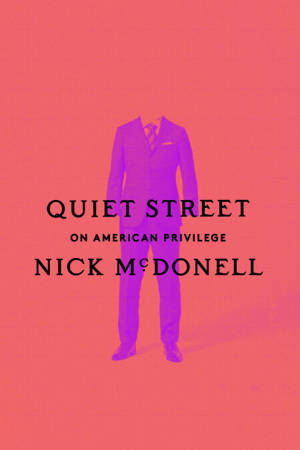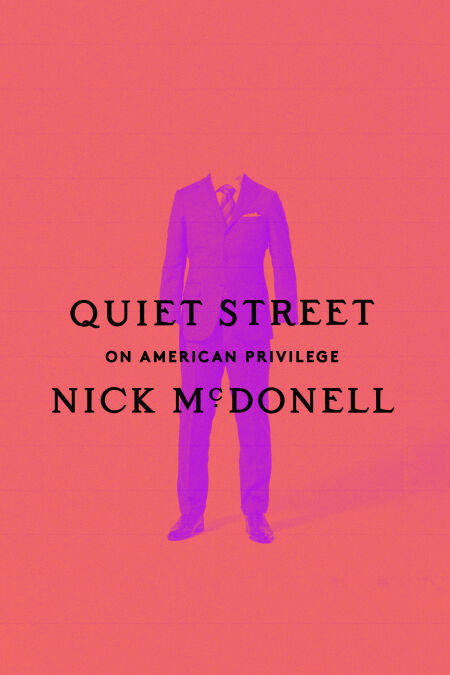
Bedankt voor het vertrouwen het afgelopen jaar! Om jou te bedanken bieden we GRATIS verzending (in België) aan op alles gedurende de hele maand januari.
- Afhalen na 1 uur in een winkel met voorraad
- In januari gratis thuislevering in België
- Ruim aanbod met 7 miljoen producten
Bedankt voor het vertrouwen het afgelopen jaar! Om jou te bedanken bieden we GRATIS verzending (in België) aan op alles gedurende de hele maand januari.
- Afhalen na 1 uur in een winkel met voorraad
- In januari gratis thuislevering in België
- Ruim aanbod met 7 miljoen producten
Zoeken
€ 17,34
+ 17 punten
Uitvoering
Omschrijving
A bold and deeply personal exploration of wealth, power, and the American elite, exposing how the ruling class—intentionally or not—perpetuates cycles of injustice
"[A] story about American inequity, and how it mindlessly, immorally, reproduces itself. Unlike most such stories, however, this one left me believing in the possibility...of drastic change." —Maggie Nelson, author of On Freedom
Nick McDonell grew up on New York City’s Upper East Side, a neighborhood defined by its wealth and influence. As a child, McDonell enjoyed everything that rarefied world entailed—sailing lessons in the Hamptons, school galas at the Met, and holiday trips on private jets. But as an adult, he left it behind to become a foreign correspondent in Iraq and Afghanistan.
In Quiet Street, McDonell returns to the sidewalks of his youth, exhuming with bracing honesty his upbringing and those of his affluent peers. From Galápagos Island cruises and Tanzanian safaris to steely handshakes and schoolyard microaggressions to fox-hunting rituals and the courtship rites of sexually precocious tweens, McDonell examines the rearing of the ruling class in scalpel-sharp detail, documenting how wealth and power are hoarded, encoded, and passed down from one generation to the next. What’s more, he demonstrates how outsiders—the poor, the nonwhite, the suburban—are kept out.
Searing and precise yet ultimately full of compassion, Quiet Street examines the problem of America’s one percent, whose vision of a more just world never materializes. Who are these people? How do they cling to power? What would it take for them to share it? Quiet Street looks for answers in a universal experience: coming to terms with the culture that made you.
"[A] story about American inequity, and how it mindlessly, immorally, reproduces itself. Unlike most such stories, however, this one left me believing in the possibility...of drastic change." —Maggie Nelson, author of On Freedom
Nick McDonell grew up on New York City’s Upper East Side, a neighborhood defined by its wealth and influence. As a child, McDonell enjoyed everything that rarefied world entailed—sailing lessons in the Hamptons, school galas at the Met, and holiday trips on private jets. But as an adult, he left it behind to become a foreign correspondent in Iraq and Afghanistan.
In Quiet Street, McDonell returns to the sidewalks of his youth, exhuming with bracing honesty his upbringing and those of his affluent peers. From Galápagos Island cruises and Tanzanian safaris to steely handshakes and schoolyard microaggressions to fox-hunting rituals and the courtship rites of sexually precocious tweens, McDonell examines the rearing of the ruling class in scalpel-sharp detail, documenting how wealth and power are hoarded, encoded, and passed down from one generation to the next. What’s more, he demonstrates how outsiders—the poor, the nonwhite, the suburban—are kept out.
Searing and precise yet ultimately full of compassion, Quiet Street examines the problem of America’s one percent, whose vision of a more just world never materializes. Who are these people? How do they cling to power? What would it take for them to share it? Quiet Street looks for answers in a universal experience: coming to terms with the culture that made you.
Specificaties
Betrokkenen
- Auteur(s):
- Uitgeverij:
Inhoud
- Aantal bladzijden:
- 240
- Taal:
- Engels
Eigenschappen
- Productcode (EAN):
- 9780593316795
- Verschijningsdatum:
- 21/08/2023
- Uitvoering:
- E-book
- Beveiligd met:
- Adobe DRM
- Formaat:
- ePub

Alleen bij Standaard Boekhandel
+ 17 punten op je klantenkaart van Standaard Boekhandel
Beoordelingen
We publiceren alleen reviews die voldoen aan de voorwaarden voor reviews. Bekijk onze voorwaarden voor reviews.









